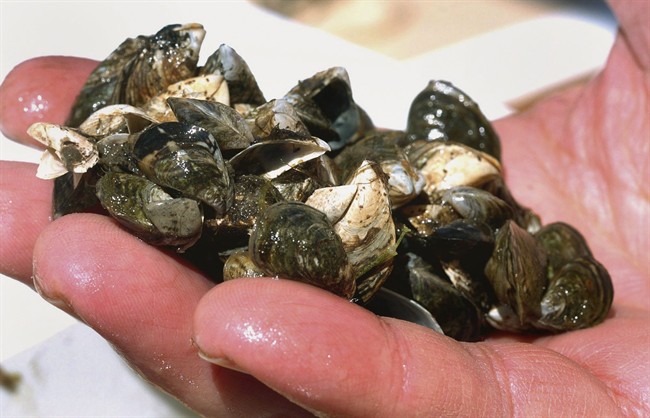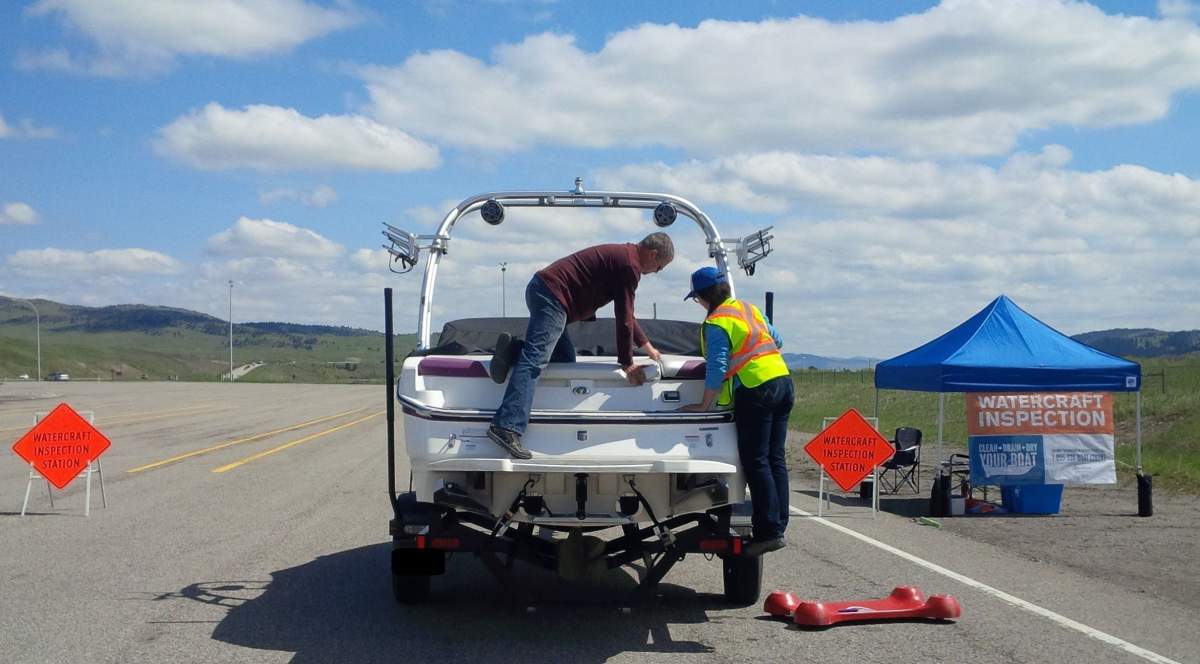EDMONTON — With summer weather now here many Albertans will be itching to head out on the water, and the province is asking people to check their boats for an invasive species of mussels that has the power to drastically change Alberta’s lakes.

There was a close call this past May long weekend, when the mussels were found on a boat bound for one of the province’s most popular lakes. The boat, originally from Ontario, was headed to Sylvan Lake in central Alberta on Sunday night when it was stopped at a watercraft inspection station meant to prevent the spread of zebra and quagga mussels.
The province said the boat owner was co-operative during the inspection, and the boat will be decontaminated by specially trained Transport Officers at no cost to the owner.

The freshwater mussels originate from eastern Europe, and were first discovered in North America in the 1980s. Zebra and quagga mussels can spread quickly. They latch onto hard surfaces – like boats and trailers – and live out of water for up to 30 days.
Once introduced to a water body, they are virtually impossible to eradicate because there are no competing species. They clog pipes at water treatment plants and can also increase algae blooms in lakes, which can kill fish and wildlife.

Get daily National news
READ MORE: Invasive aquatic species threatens Alberta water
Alberta, B.C. and Saskatchewan are the only provinces without waterways infested with the invasive mussels. Last year officials in Manitoba had to close off a section of Lake Winnipeg and inject liquid potash into the water to kill off the zebra mussel population there.
All three western provinces are working in cooperation with five northwestern U.S. states – Washington, Oregon, Idaho, Montana, and Wyoming – to standardize roadside inspections on both sides of the border.
The province estimates an infestation in Alberta could cost the province more than $75 million annually. In April, the government amended the Fisheries Act, making it mandatory for all vehicles carrying or towing a water-based vessel, like a boat or Sea-Doo, to stop at any inspection station they come upon. Bypassing one can result in fines up to $100,000 or 12 months in prison.
This year 13 inspection stations will be operating from dawn to dusk, seven days a week across Alberta, according to Cindy Sawchuk with Alberta’s Environment Sustainable Resources Development department. The major points of entry into Alberta, especially on the eastern side of the province, will be the main focus for inspectors. Roving crews will also set up at lakes and provincial parks throughout the summer.

The mussels like to hide in damp, dark places with angles, such as around a boat’s motor or propeller, along with live wells and water-storage compartments. Because they can be microscopic, Sawchuk says it’s important for owners to clean, drain and dry their boat each time they leave the water to reduce the risk of mussels spreading.
The mussels can be tricky to properly remove, so owners who suspect their boat has been contaminated are urged to contact the province to arrange for an official to carry out decontamination.
For more information or report something suspicious on your boat or equipment call 1-855-336-2628 (BOAT).
With files from Erika Tucker and Stefanie Dunn, Global News






Comments